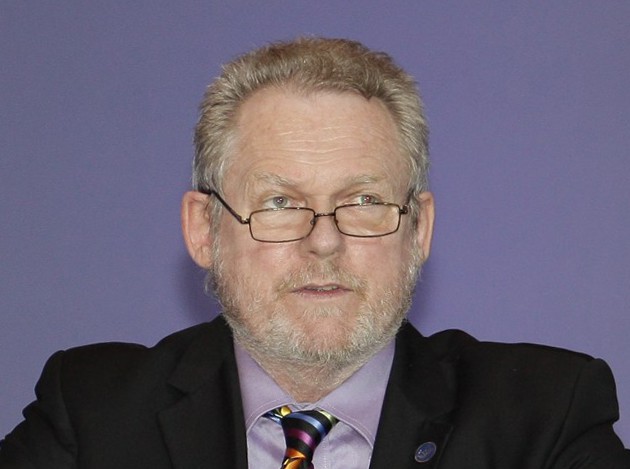
Minister of Trade and Industry Rob Davies needs to investigate the Lottery. Photo: Sigid Kurniawan/WTO/ANTARA via Wikipedia (CC BY-SA 2.0)
20 March 2019
Most people who play the Lottery in South Africa are poor. The Lottery is controversial because of this. But it is supposed to have an upside: funding projects that help poor people and develop the country.
With the launch of the National Lotteries Act in 1997 in preparation for the launch of the National Lottery in 2000, privately-run lotteries and scratch card games, which some non-profit organisations (NPOs) were using to raise desperately-needed funds, were outlawed.
In effect the National Lottery became the only game in town, while NPOs like Cape Town’s Community Chest lost a major source of income.
The Lottery has done much good dispersing grants to a wide variety of non-profits. But changes to the law in 2015 opened the door to “conduits” to apply for funding on behalf of NPOs that did not meet strict funding criteria. The changes also allowed “pro-active” funding that allowed the Trade and Industry Minister or the National Lotteries Commission (NLC) to identify funding needs. This effectively cut the three Distribution Boards tasked with assessing applications – Charities, Arts and Culture and Sport and Recreation – out of the loop.
The change in the law also led to the birth of Lottopreneurs, people who specialise in getting a share of the average R2-billion per year that the NLC distributes to “good causes”.
The South African leg of a worldwide investigation into lotteries has uncovered projects where hundreds of millions of rands have passed through the hands of dodgy, dormant or hijacked NPOs.
They include a controversial attorney, who used a hijacked NPO to get R27.5-million in grants for a drug rehabilitation centre that is now mired in controversy; a boxing promoter, whose dormant NPO was used to funnel over R28-million to build a school, which needed repairs 19 months after it was opened because of shoddy construction; a tiny private school in rural Limpopo that was used as a conduit for almost R60 million in grants for a countrywide borehole project, and for a music festival; and a drug rehab centre project in Mpumalanga where, despite the NLC paying over R20-million in 2016, construction has ground to a halt; and a construction company, of which the NLC’s COO’s brother was a sole director, which received a R15-million Lottery-funded contract to build and furnish a drug rehab centre. An independent quantity surveyor put the value of the actual work done at R4.8-million.
These reports could be the tip of an iceberg because our investigations into the Lottery have been hampered by the NLC’s lack of transparency. Questions to the NLC are regularly not properly answered or just ignored.
Of six applications submitted to the NLC under the Promotion of Access to Information Act (PAIA) as part of our investigations, four have been turned down and refused again on appeal. In one case a PAIA submitted months ago has been ignored. In another, most of the key documents requested were never supplied.
The NLC claims to be “open and transparent”, but all too often hides behind “confidentiality” and “privacy” of funding recipients. The Parliamentary Portfolio Committee on Trade and Industry, which has oversight of the Lottery, is not much better: the chair has ignored our requests for comment.
It is urgent that the Lottery be investigated. With the wide and detailed coverage that the looting of the Lottery has received, Trade and Industry Minister Rob Davies cannot claim ignorance. He must launch an inquiry into the rot at the NLC.
As ultimate custodian of the Lottery, Davies owes it to poor people, who in buying tickets in the miniscule hope of a big payday are keeping the Lottery going.